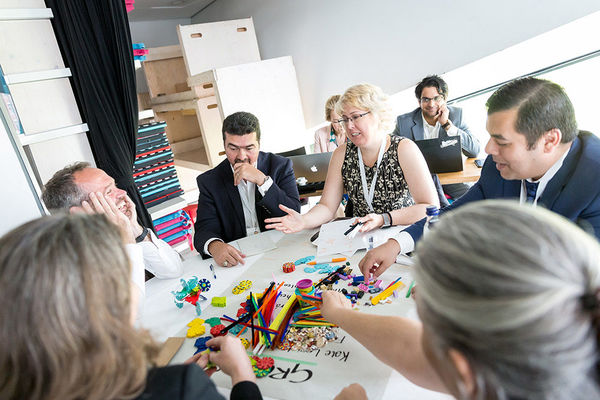
In 2014, the United Nations (U.N.) set a number of sustainable development goals to meet by 2030. One of those goals was intended to ensure access to affordable, reliable, sustainable, and modern energy for all. Currently, the world is not on track to meet this goal and in order to understand why, the U.N. convened the 2019 Sustainable Energy for All (SEforALL) Charrettes.
Abigail Mechtenberg, assistant teaching professor of physics at the University of Notre Dame and international sustainable development researcher at Notre Dame Energy, was one of 100 researchers, experts, and global leaders invited to participate in the SEforALL Charrettes, which are meetings of stakeholders to develop sustainability-related solutions. This group was tasked with evaluating how to support countries that account for the majority of the one billion people without access to energy who are at risk for being left behind in meeting the 2030 goal. Mechtenberg was assigned to the Data and Evidence Charrette.
“As participants in the SEforALL Charrettes, our group was asked to consider how we can improve the data and evidence validity to increase the implementation of successful projects, programs, companies and policies,” said Mechtenberg. “Additionally, we wanted to focus on what quality electricity is and what it means for countries that are not on track for 2030.”
For Mechtenberg, this means moving beyond capacity building and moving into capacity transformation. For example, she provided the idea of a “walking grid," where people carry electrons in batteries when they walk to and from charging stations, making connections between villages and towns.
At Notre Dame, Mechtenberg leads the Energy Education, Engineering-design, and Entrepreneurship (Energy E3) program as part of her Energy and Sustainable Development with Design (ESDD) Research Laboratory to address sustainable energy needs in low- to middle-income countries including Haiti, Rwanda, Nigeria, and Uganda. Similar to the aim of her assigned SEforALL Charrette, the goal of Energy E3 is for researchers to work with counterparts in various countries to develop different generation systems and devices; thereby, transforming the walking grid into a smart grid.
The SEforALL Charrettes were held in Amsterdam, Netherlands from June 18 to June 20, 2019. Outcomes of the Charrettes and subsequent work by participants will be shared with SEforALL partners to build upon ongoing work and to influence future global initiatives, including the U.N. Secretary-General’s Climate Action Summit in September. To learn more about the event and their goals, please visit https://www.seforall.org/news/the-2019-sustainable-energy-for-all-charrettes.
The Center for Sustainable Energy at Notre Dame (ND Energy) supports energy-related research and education programs at the University as well as outreach within the surrounding community. Additionally, ND Energy strives to influence national and global discussions surrounding pressing energy policy concerns. To learn more about the center, please visit energy.nd.edu.
Contact:
Barbara A. Villarosa / Business and Communications Program Director
ND Energy / University of Notre Dame
energy.nd.edu / @NotreDameEnergy
About Notre Dame Research:
The University of Notre Dame is a private research and teaching university inspired by its Catholic mission. Located in South Bend, Indiana, its researchers are advancing human understanding through research, scholarship, education, and creative endeavor in order to be a repository for knowledge and a powerful means for doing good in the world. For more information, please see research.nd.edu or @UNDResearch.
Originally published by at research.nd.edu on July 09, 2019.